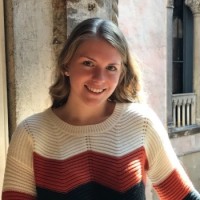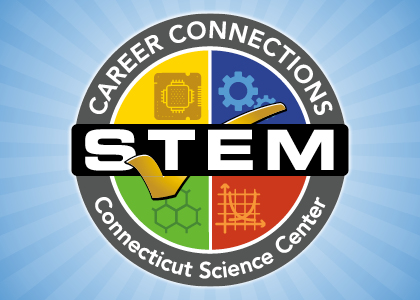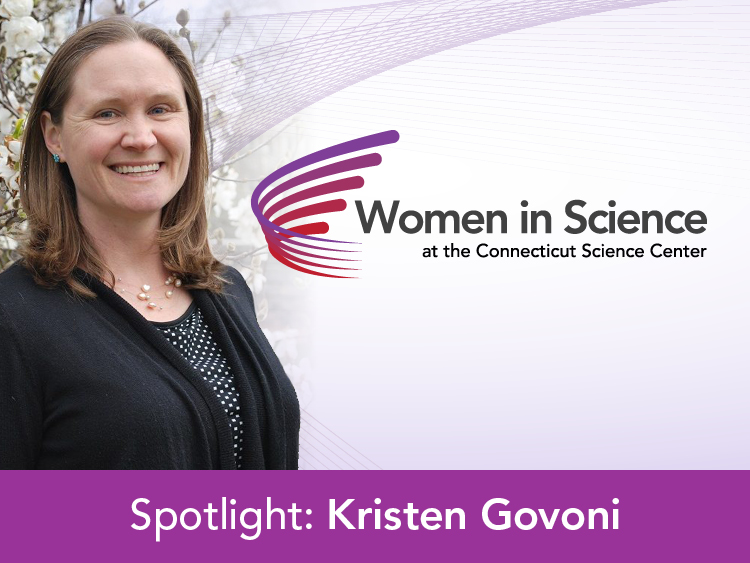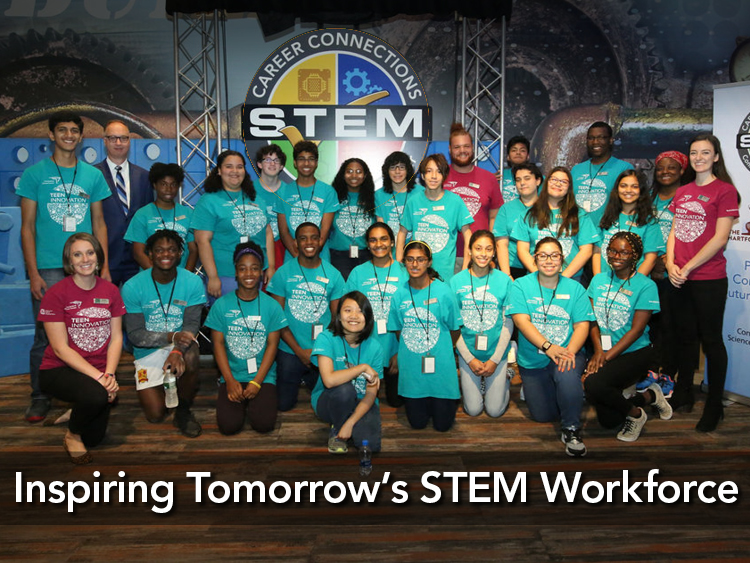 The scientific field of genomics is relatively new compared to other STEM fields. It wasn’t until 1871 that a man by the name of Friedrich Miescher identified the presence of ‘nuclein’ (now known as DNA) in a scientific paper. It took over 80 years from this discovery to get our first glimpse of this essential molecule, and then another 50 years to sequence the first human genome. This field is now growing by leaps and bounds, outpacing public awareness, which is why researchers and educators continually work to explore and explain the science behind what makes us, us.
The scientific field of genomics is relatively new compared to other STEM fields. It wasn’t until 1871 that a man by the name of Friedrich Miescher identified the presence of ‘nuclein’ (now known as DNA) in a scientific paper. It took over 80 years from this discovery to get our first glimpse of this essential molecule, and then another 50 years to sequence the first human genome. This field is now growing by leaps and bounds, outpacing public awareness, which is why researchers and educators continually work to explore and explain the science behind what makes us, us.
Doctors Christine Beck, Vallianatos, and Alexa Wnorowski are part of the new frontier of genomics research and education. Dr. Christine Beck is a researcher with Jackson Laboratory and UConn Health Center. In her role, Dr. Beck is investigating in hopes that her inquiries could fine regions of the body that are prone to cancer and lead to targets for therapy. Her main areas of research are in cancer biology & computation modeling. Dr. Beck’s love of STEM began in high school. “I had a wonderful high school chemistry teacher who inspired investigation and curiosity in science through bench experimentation. It was the first time that I felt really invested in scientific discovery,” Dr. Beck recalls. The path for many scientists and researchers is not linear, and the same is true with Dr. Beck. “I still wonder what I want to do in ~10 years,” Dr. Beck says, “Some of my most relevant experiences for my scientific career have come from other interests and jobs I have had. I knew I wanted to pursue genetics after working as a technician and really getting interested in both mentoring scientists and in being able to conduct the research that was most interesting to me.”  Like other scientific fields, the study of genomics is full of challenges, trials, and errors. Creating a system to record the mass amount of data that comes from genomics research is just one of the challenges that comes with this field. A March 2018 survey showed that data management and storage were ranked among the top obstacles organizations currently face. Dr. Beck recognizes the challenges that come with this research. “Persistence and doggedness make sure that I keep working on questions that are particularly difficult; this quality is very important in science.” Dr. Beck says, “There may be setbacks, but never enough to throw in the towel!”
Like other scientific fields, the study of genomics is full of challenges, trials, and errors. Creating a system to record the mass amount of data that comes from genomics research is just one of the challenges that comes with this field. A March 2018 survey showed that data management and storage were ranked among the top obstacles organizations currently face. Dr. Beck recognizes the challenges that come with this research. “Persistence and doggedness make sure that I keep working on questions that are particularly difficult; this quality is very important in science.” Dr. Beck says, “There may be setbacks, but never enough to throw in the towel!”
While Dr. Beck focuses on the research side of genomics, Doctors Christina Vallianatos and Alexa Wnorowski tackle genomics education. Doctor Vallianatos is the Genomics Education & Outreach Program Manager at The Jackson Laboratory. She uses her expertise to design, develop, and teach courses and educational programs focused on genetics. For most of her research career, she has focused on neuroscience and genetics. “I’m fascinated by the brain, and also by how variations in our genes contribute to human diversity.” While at JAX, Vallianatos has “worked with laboratory mice and cells like neurons; used tools like microscopes and pipettes; studied DNA, RNA, and protein; performed sequencing analyses; learned coding; and more!” Vallianatos says she is especially interested in rare disease research and forging connections between scientists and patient communities.  She says, “social media has allowed families with rare disorders to find each other and form support and advocacy networks. Likewise, scientists are able to share their research findings in more publicly accessible ways.” This sharing of information across platforms is especially important with genomics research and targeted treatments. Vallianatos sees this collaboration as an indication of where STEM careers will go in the future. “I think that in the future we will find more STEM professionals crossing into non-STEM fields,” she says, “Scientists in journalism, engineers in congress, public health officials in the media, doctors in education, etc.”
She says, “social media has allowed families with rare disorders to find each other and form support and advocacy networks. Likewise, scientists are able to share their research findings in more publicly accessible ways.” This sharing of information across platforms is especially important with genomics research and targeted treatments. Vallianatos sees this collaboration as an indication of where STEM careers will go in the future. “I think that in the future we will find more STEM professionals crossing into non-STEM fields,” she says, “Scientists in journalism, engineers in congress, public health officials in the media, doctors in education, etc.”
 Dr. Alex Wnorowski is a genomics education fellow at The Jackson Laboratory. She focuses on curriculum development, teaching, and educational programming for high school and undergraduate students. Her days vary – some days she will be researching and developing new programs while other days she’s in the lab, testing curricula. While Dr. Wnorowski has many roles, she says the most rewarding part is interacting with students and teachers. She also really loves “thinking of ways to integrate real scientific research into our programs and curriculum, so that students have an opportunity to connect science concepts to modern scientific discoveries, research, and techniques.” The field of genomics has changed dramatically in its short life and there are only more changes to come. When asked about the future of the field, Dr. Wnorowski said “I am hopeful that an increased focus on equitable science education, ethics, and community-oriented science will prepare the next generation of STEM researchers and professionals to be more thoughtful in their research design and engaged with their broader communities.”
Dr. Alex Wnorowski is a genomics education fellow at The Jackson Laboratory. She focuses on curriculum development, teaching, and educational programming for high school and undergraduate students. Her days vary – some days she will be researching and developing new programs while other days she’s in the lab, testing curricula. While Dr. Wnorowski has many roles, she says the most rewarding part is interacting with students and teachers. She also really loves “thinking of ways to integrate real scientific research into our programs and curriculum, so that students have an opportunity to connect science concepts to modern scientific discoveries, research, and techniques.” The field of genomics has changed dramatically in its short life and there are only more changes to come. When asked about the future of the field, Dr. Wnorowski said “I am hopeful that an increased focus on equitable science education, ethics, and community-oriented science will prepare the next generation of STEM researchers and professionals to be more thoughtful in their research design and engaged with their broader communities.”
While genomics may seem like science from the future, it is already accessible in our day-to-day lives. Things like ancestry kits use basic principles of genomics to give us an insight to our genetic heritage. The study of genomics will continue to become more present in our everyday lives as researchers and educators discover more about this field. Within 50 years, we expect comprehensive genomics-based health care to be the norm in the U.S. Scientists like Drs. Beck, Vallianatos, and Wnorowski will help us navigate these new discoveries.

Bridget Leahy is the Programs Administrator at the Connecticut Science Center where she assists with educational programming. She has a Masters in History from Clark University.



